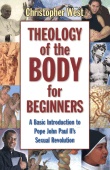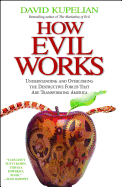“If you don’t have anything nice to say, don’t say anything at all.”
As a good little middle-class girl growing up in a small town in the 1960s, I had the all-importance of niceness drilled into me pretty thoroughly. It has taken me my whole adult life to get over it.
About ten years ago, I realized I had some unresolved issues with “niceness” after an incident that happened to my then-17-year-old niece. At a basketball game, a boy had approached her and made a very lewd suggestion. She responded quickly, appropriately and, to my mind, brilliantly. But not “nicely.” She dumped her large cup of iced Coke all over the guy, her eyes blazing as she said most emphatically, “Don’t you ever talk to me that way again!” It worked. The guy never bothered her again.
When I heard the story later from her mother, I was very impressed. And bemused. For my niece is one of the sweetest-spirited, most loving, giving individuals I’ve ever known. Moreover, she was raised in an exceptionally devout Christian home, and in one of those “fundamentalist” churches that does not dodge St. Paul’s teaching that wives should submit to their husbands. At that time in my life, I had not been a believing Christian for very long. I was not yet Catholic and did not yet have the spiritual eyes to really understand Paul’s teaching. At that early point in my Christian development, my sweet niece’s bold behavior struck me as paradoxical. How could a church that raised females to be submissive produce a girl who, when faced with male piggishness, could instantly respond more boldly than I, a supposed feminist, had ever summoned the nerve to do? Even in my most radical feminist days, whenever difficult situations arose, I did what my “nice girl” conditioning had trained me to do — avoid, evade, ignore, let it pass. Don’t confront, don’t make waves, don’t incur people’s anger.
I soon figured out that there was no paradox at all in my niece’s behavior: She’d been raised to see herself as a precious child of God, made in the Divine Image, with intrinsic, inviolable dignity. Of course you don’t let people treat you like an object. Of course you don’t tolerate abuse of any sort.
Her example affected me deeply. I found myself reeling with shame and rage and grief. For several weeks, every time I thought about what my niece had done, I broke down sobbing. Not for her, but for myself. My niece’s behavior — the almost automatic readiness with which she’d defended her own honor while teaching someone a needed lesson — brought up to the surface all my own long-submerged pain and frustration from the various psychological abuses I’d endured, from my early teens to my early 30s, never quite knowing how to fight back. The contrast between my own debilitating confusion whenever I’d been faced with sexual harassment and my niece’s simple, instinctive response caused an emotional reaction in me that to any outside observer would have looked way out of proportion. But the weight of countless insults, endured over many years, crushed me with remorse for all the times my conditioned, habitual “niceness” had inhibited me from responding appropriately. I felt that I had been launched into life without one of the most basic tools of survival.
But enough of true confessions. The issue of whether to be “nice” or not goes way beyond the personal and individual. The fate of nations can depend on it.
Breitbart vs. Weiner: The virtue of not being nice
I was inspired to ponder the pros and cons of “niceness” recently after watching the way Andrew Breitbart fought back after Rep. Anthony Weiner, in an effort to divert attention from his own wrongdoing, tried to “kill the messenger” by attacking Breitbart. Weiner and his cronies in the liberal media accused Breitbart of hacking Weiner’s Twitter account and lying about it. Well, as we all know now, Andrew was completely vindicated, and Weiner is the one who was lying all along. Just one more case of a Leftist projecting their own bad deeds and intentions onto a conservative. Leftists use that tactic all the time; unfortunately, there’s nothing unusual about it. But what inspired me was the way Andrew Breitbart, as is his wont, righteously fought back. I wish I could send every Republican in Washington to an Andrew Breitbart Boot Camp. No more pussy-wussy-footing around! No more Georgetown cocktail-party schmoozing. No more playing golf with the President. No more sitting next to our enemies at the State of the Union address. No more assuming good intentions on the part of any communist, including the one in the White House and the ones in Congress (otherwise known as the Congressional Progressive Caucus.)
It would be an injustice to their victims to be nice to these people. Obama’s political mentor and sponsor (and likely, his ghostwriter) Bill Ayers once chaired a meeting where his fellow Weather Underground terrorists talked about “eliminating” 25 million Americans if they refused to be “re-educated.” Now he’s a professor of education at the University of Illinois, and is one of the leading figures in academia on curriculum development. Ever wonder why your kids’ heads are being filled with poisonous claptrap at school?
Ayers and his fellow “progressives” have declared war not only on conservatives, not only on America, but on the most basic foundations of society, including especially the family. They’re following Saul Alinsky’s playbook, Rules for Radicals, and it is not a nice book. It’s even dedicated to Lucifer, a.k.a. Satan! Saul Alinsky was not a nice man. (He was mentored by Al Capone’s enforcer, Frank Nitti, for crying out loud. ) His followers are actively implementing the Cloward-Piven strategy, which is not nice at all, but vicious and manipulative and cruel. Frances Fox Piven herself, not long ago, expressed her disappointment that the revolution had still not arrived, that Americans were not yet killing each other in the streets.
Every time some “conservative” politician or radio host says that “Obama’s a nice man, I just don’t agree with him,” I want to vomit. They can’t really believe that. Not only are Obama’s policies specifically designed to inflict as much misery on as many people as possible, but his personal treatment of individuals he doesn’t like has ranged from rude to thuggish. Even the densest member of the Party of Stupid must know by now that Obama does not have good intentions. He’s a mean-spirited, vengeful, narcissistic bully, and everybody knows it. But there’s a reason so many Republicans keep giving Obama the benefit of the doubt (at least, publicly): It’s because it makes them sound like nice, broad-minded, kind, enlightened people. That’s the way they want to see themselves — and the way they want us to see them — even if they have to lie to themselves to keep up their illusion.
Andrew Breitbart, that happy warrior, has shown what a crock this is.
Had Breitbart been “nice” and “turned the other cheek” and backed down in the face of the Left’s attacks, he would have been an enabler of Weiner’s sick behavior. And for all the salacious jokes generated by the scandal, Weiner’s actions incurred deadly serious risks: They made him vulnerable to blackmail. Suppose the offensive tweets had not come to light when they did, and someone without our nation’s best interests at heart had gotten hold of them and used them as a threat against Weiner in order to extort classified information from him? Weiner sat on the Energy and Commerce Committee; he had access to information that our enemies might find quite useful.
When Andrew Breitbart fought back against Weiner’s false accusations, he wasn’t just defending his own character and reputation. He was, by extension, fighting on behalf of all of us who oppose the atheist/communist Left. Breitbart was striking a blow for truth, which always needs able defenders, but especially in a society so dominated as ours is by “people of the lie.” It is a righteous deed to expose those who bear false witness. As Andrew Breitbart has repeatedly shown, there are times when we have a duty to not be nice.
I’m not saying we should aim to offend people, especially in our personal lives. But I do believe niceness for its own sake is often a very bad idea. True Christian charity is one thing. But being “nice” out of habit, or timidity, or reluctance to hold others accountable for their own bad choices is destructive to oneself, to the wrongdoer, and to others. Plus, it diminishes the standing and the presence of Truth in the world. Ultimately, that hurts people.
Being “nice” (politically correct) vs. true compassion
Decades ago, Daniel Patrick Moynihan, found out, as Breitbart has, how viciously some people will react when you speak truth — even if you are motivated by sincere compassion and concern. As assistant secretary of labor and a key policy adviser to President Johnson, Moynihan put a copious amount of research and thought into an effort to find out why, after decades of progress, black families had started slipping in numerous indices of social and economic well-being. In 1965, Moynihan published his findings and recommendations in a landmark study titled The Negro Family: The Case for National Action. Moynihan warned that the greatest danger to American blacks was fatherlessness. A generation of young men was growing up without fathers in the home, and if that continued, there would be disastrous consequences, as young men without fathers were growing up vulnerable to drugs, gangs, crime and dropping out of school.
America freaked out. You can’t say such things. You are not a nice person! You’re racist! Well, what is more racist — telling the truth, so that people are empowered to make good choices for themselves — or succumbing to “the soft bigotry of low expectations,” giving people the message that you don’t have any faith in them as decent, competent human beings capable of acting wisely on their own behalf?
A man who cared deeply about his fellow man, of whatever race, was labeled a racist. But a few decades earlier, on the other side of the world, the most bigoted man who ever lived was regarded by many as… a nice, caring man.
Hitler’s beautiful smile
Several years ago, I read an elderly Italian woman’s recollection of an incident from her childhood in a small town in northern Italy. One day, when Hitler was already widely known but before he’d come to power, he toured through the area. It was a big day for the town. Hitler was riding in the back of a car and waving to everyone, shaking hands with people, and beaming with what she described as a beautiful, winning smile, a smile that people remembered long afterward. They liked him because they felt that he cared for them, the common people. Girls and women were smitten with him.
In contrast, when Winston Churchill was at the equivalent point in his own career — widely known, but not yet in power — he was not very well liked at all. His countrymen thought him a pessimist and a doomsayer, because he just wouldn’t let up with his warnings about some distant threat in Germany that nobody wanted to hear about or think about. Churchill was insightful enough to perceive the truth — and bold enough to speak it. But it didn’t win him many friends. That is, not until Hitler’s tanks rolled into Poland.
N.I.C.E. is not
Speaking of great Englishmen, have you read C.S. Lewis’ That Hideous Strength? It’s a futuristic novel, the third in Lewis’ sci-fi trilogy. In it, Lewis’ antipathy toward scientism — not science, but scientism — comes through clear and strong. Scientism is the fetishizing of science; it’s an ideology holding that the only things that are real are things that can be proved empirically. Further, the rules for empirical proof are formulated — and can be arbitrarily changed — by scientists, who have their own biases just like everyone else, but who don’t see their biases as biases.
In Lewis’ novel, scientific research has broken free of all moral and ethical concerns save one: utility. The ends justify the means, so there are no unethical means (think Nazi doctors), and the end, or goal, is whatever the powers-that-be deem useful. The prime national research agency is the National Institute for Coordinated Experiments, or N.I.C.E. The experiments they do there are not nice at all. Let’s just say that the current abortion regime in the U.S. and the current euthanasia regime in the Netherlands pale by comparison to the things that go on at the N.I.C.E. Thank goodness it’s a work of fiction.
Ironically enough, in the real, present-day Britain, the National Health Service’s agency for deciding who gets what kind of medical care — the British health-rationing board or, dare I say, “death panel” — is called… NICE. The National Institute for Clinical Effectiveness. I kid you not.
The $64,000 question, of course, is: Did they give it that acronymically portentous name accidentally or intentionally? Are British bureaucrats so culturally illiterate that they never read their fellow Englishman’s famous book? Or are they diabolical, knowing very well the literary significance of that acronym — and deliberately using it as a kind of perverse inside joke? The present-day NICE is, after all, the board that decides who shall live and who shall die. (The U.S. version of that board — Obamacare’s 15-member Independent Payment Advisory Board, or IPAB — is to be tasked with evaluating the “comparative effectiveness” of various treatments, so once Obamacare kicks into full gear, we too will have a NICE….)
Beware of “nice” governments
Barack Obama got elected in spite of — or, depending on whom you talk to, because of — his promises to talk, talk, talk to our enemies. But as we have seen in the past 2½ years, from China to North Korea to Venezuela, from Syria to Iran to Pakistan, our enemies are not very impressed with “nice.” As with all bullies, appeasement only emboldens them. You’d think we might have learned something from the example of the terminally nice Neville Chamberlain. Tens of millions of people died in the war that proved Chamberlain’s talk-nice approach to have been the wrong one.
Count me in with those nasty warmongers Churchill and Reagan. Count me in with those pugnacious pundits Andrew Breitbart and Ann Coulter. Lucifer (and the people who read books dedicated to him) has got a hold on America. We don’t have the luxury of playing nice.
UPDATE: The incomparable Ann Barnhardt considers “niceness” one of Satan’s most effective tools in his efforts to destroy Western civilization, the United States of America, and orthodox Christianity.





Was Jesus a Pacifist?
October 17, 2011 by creativetensor
That’s a question with a long history in the Church. Many of the Early Church Fathers directed Christians not to take up arms, but their argument often revolved around the particular problems of service in the forces of Rome. In the Roman military, worship of the Emperor, i.e., idolatry, was in many cases a required practice; thus, nobody with allegiance to the One True Living God could conscientiously participate.
Some of the Early Fathers, though, were very clear that no follower of Christ should deliberately take the life of a fellow human being, since Christ died for all, even our enemies. Since, as long as a person breathes, there is a chance for his conversion, we may not cut that life short. And yet, among the canonized saints of the Church, there are warriors and military leaders along with pacifists.
On the other hand, St. Ferdinand III, king of León and Castile, is also a revered saint — and he was a military leader who spent his career leading forces in numerous battles against the Muslims occupying southern Spain at the time, as well as personally slaying many Muslims himself. Other warrior saints include St. Louis IX and St. Joan of Arc.
What are we to make of all this? Some say that only those such as monks who have taken vows need renounce all violence, while the rest of us live with the Just War doctrine first formulated by St. Augustine, and further developed in later centuries. (A very good nutshell summation of it can be found in the Catechism of the Catholic Church, §2309)
Others, such as Mennonites and Quakers, believe that pacifism — a refusal to ever do violence to another person, even under direct mortal threat to oneself and/or one’s family — is incumbent upon anyone calling himself or herself a Christian.
I used to be a pacifist, and a Mennonite. I now believe that that stance is yet one more example of how heresy always tends toward oversimplification. Heresy has often been described in terms such as these:
In the case of pacifism, one part of the Gospel — the default stance of nonviolence — has perhaps been exaggerated at the expense of other parts of the Gospel — such as the duty to defend the innocent and defenseless. Truth in its wholeness tends — at least, on this side of heaven — to seem paradoxical, holding seemingly opposite things in tension. I think of what my (Catholic) pastor once said — that when you come into the Church that Jesus founded, you will know that you are home — but that does not mean you will be comfortable. Since we are fallen creatures, and limited in certain ways during our mortal existence, when we come into the presence of Truth Himself there’s always a certain tension.
St. Ferdinand III (San Fernando Rey)
The question of when violence is justified, and when it is not, should be one that no Christian takes lightly. We do believe that each and every human being is made in the image and likeness of God, and is infinitely loved by Him. We also know that this earthly life is not all there is — we are each made for all eternity — and yet what we do here on earth has eternal consequences.
The great Ann Barnhardt has written a very important, brilliant (as usual) piece on this question. I guarantee she will make you think of some things you hadn’t thought of before! While I don’t agree with every particular of her argument, her essay is substantive and well worth reading.
Share this:
Posted in Commentary | Tagged Ann Barnhardt, Bible, Biblical translations, Catholicism, Christianity, Conversion, Douay-Rheims, Early Church Fathers, Gospel, Heresy, Islam, Jesus, Just War Doctrine, Latin, Military, Nonviolence, Pacifism, Vulgate, Warrior Saints | 4 Comments »